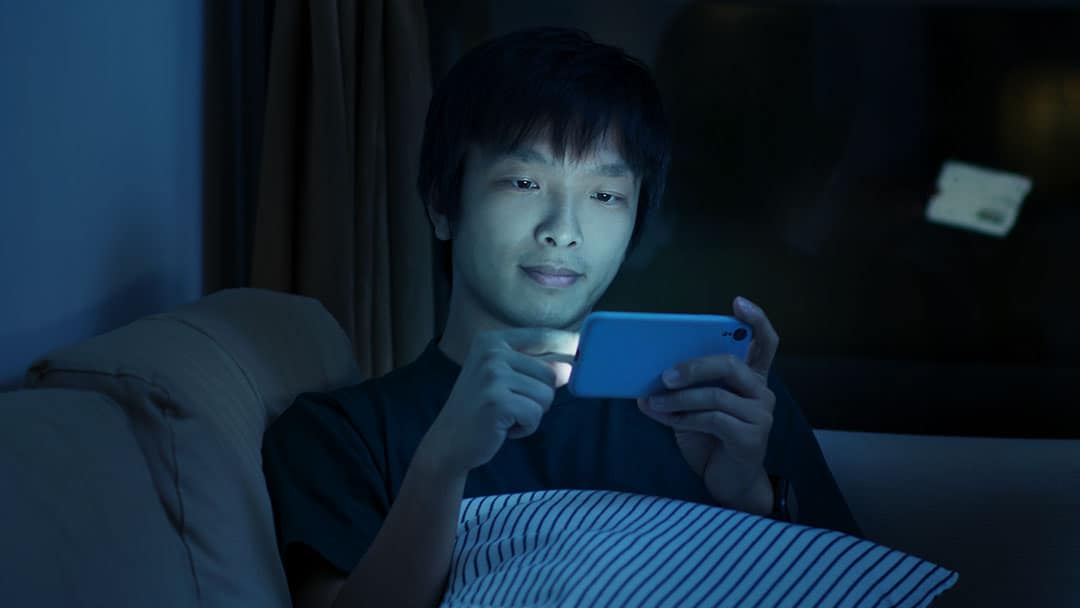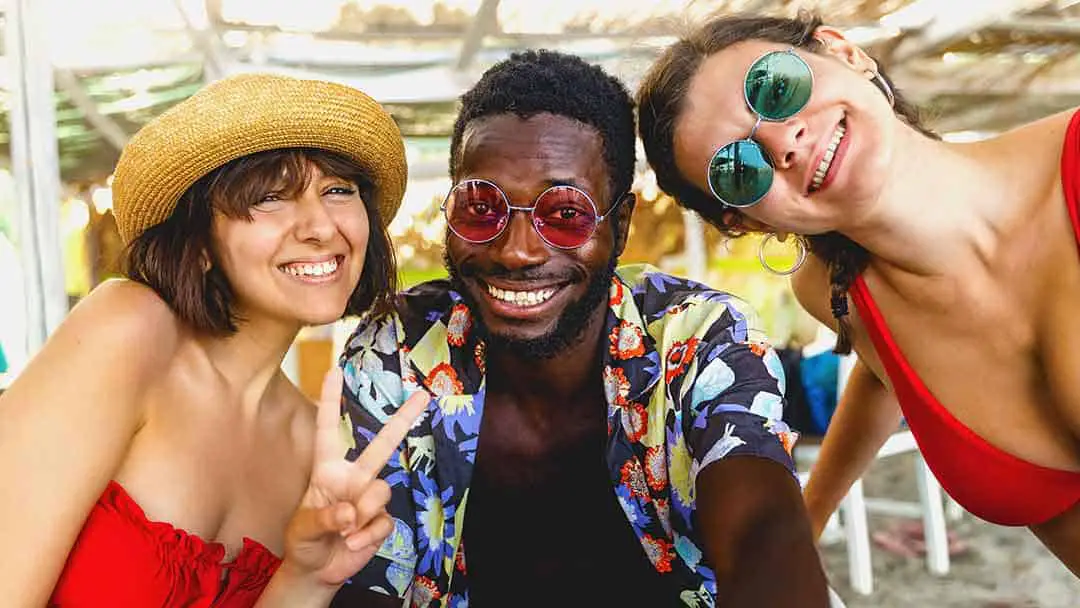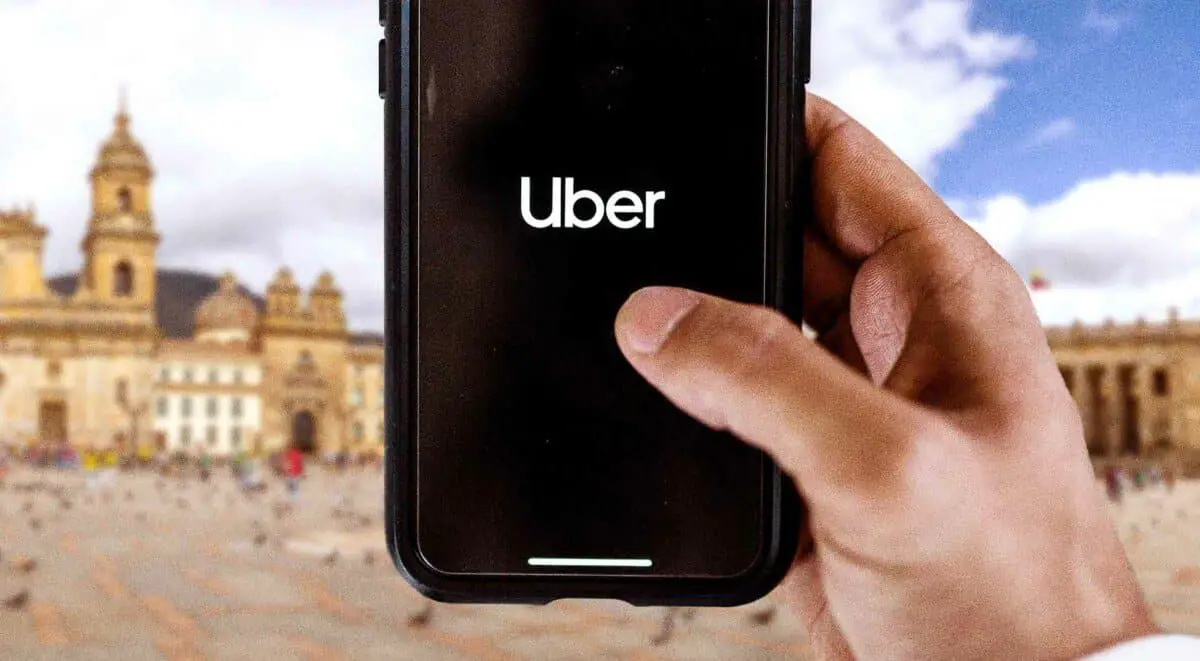9 Ways To Block Blue Light On Computers & Smartphones

As an Amazon Associate we earn from qualifying purchases made on our website. If you make a purchase through links from this website, we may get a small share of the sale from Amazon and other similar affiliate programs. You can read our complete legal information for more details. By using this site, you agree the information contained here is for informational purposes only. For specific medical questions, consult your doctor. NO information on this site should be used to diagnose, treat, prevent or cure any disease or condition.
Natural blue light from the sun is not thought to be a problem, and it is actually crucial for general health. The rising and setting of the sun have a huge impact on our sleep cycle and well-being.
Artificial blue light is a relatively new addition in the timeline of human existence, and it has been shown that it COULD cause potential eye damage and negatively impact sleep. And if you negatively impact sleep, you are negatively impacting general health. (1)
There are a few reasons you may want to consider mitigating your blue light exposure at night.
Perhaps you are a shift worker, a night owl with issues with going to sleep early and close to when the sun goes down, or you just want to improve your overall sleep health.
If you want a deeper dive into the subject of blue light, then you may find this article helpful:
Let’s see how we can limit our exposure to artificial blue light:
General ways to block blue light
Limit your time
Stop looking at computer screens and smartphones full stop. This is the optimal choice. But obviously, we have to work and check into Facebook to see how our friend’s trout-pout selfie game is progressing.
So, it is hard to spend zero hours a day on screens. But if you can limit your screen time to daylight hours, it will place less stress on your eyes and have a limited impact on your sleep cycle and not mess up melatonin production.

Blue light blocking glasses
Blue light blocking glasses are a great option because you can just use one pair, and they will block blue light from any device you are looking at regardless of if it is a TV, Computer, or Mobile Phone.
Meaning one purchase covers all the bases. There is a huge range of glasses out there now, from the very cheap to the very expensive.
There are just regular no prescription ones for people who don’t need glasses or use contact lenses, prescription glasses options, and clip-on ones for people who want to still wear their normal prescription glasses.
You will be able to find a good option for your needs and budget.
Personally, I use and recommend glasses from RA Optics. They have extremely high-quality lenses. Plus, they offer our readers a 10% discount with this link.
If you want a starter pair at a very affordable price, then check out these offered on Amazon. They were my first pair!

Change the lighting in your house.
Replace harsh “white” light bulbs with warmer amber-tinted light bulbs. Stay away from LED bulbs.
Himalayan Salt Lamps are also a great option. I have one in most rooms.
Fluorescent light filters
Fluorescent lights are horrible. If you have ever worked in an office, you will know how harsh the lighting is from fluorescent lights.
If you spend a lot of time under these, you can buy heat-resistant plastic film shields that safely fit over the lights and help reduce the blue light emitted.
They are very cheap, so I would be surprised if your workplace refused to install them, they probably just don’t know they exist.
Just be warned, I don’t believe they are 100% effective at removing blue light but they should help.
How to block blue light on your computer
Iris Tech
This is downloadable software for your computer. There are a free version and a licensed version for $15 at the time of writing.
This is a great software which I personally use on my computer. It allows you to adjust how much blue light is emitted from the computer screen, depending on what time of day it is.
F.lux
Another company that allows you to download software to reduce your blue light exposure depending on what time of day it is.
They also sell cool light reading meters, so you can go around your house and find out how much blue light you are being exposed to on a daily basis.
Operating System
Most operating systems will include some sort of function where you can lower the effects of blue light.
For example, in Windows 10, you can turn the Night Light on, set its level, and set what times of the day it turns on and off. Go to the start menu > settings > system > display > toggle Night Light to ON.
Same thing for a Mac OS. Go to Apple Menu > System Preferences > Displays > Turn on Blue Light Filter
Screen protectors
Depending on which ones you buy, they either slide over, clip-on or rest on your computer screen.
They will filter out the blue light and have the bonus of keeping your computer screen clean and free from dust.
Just make sure you buy one that does not overly impact the quality of your resolution.
Warning: these change the colors of your screen.
Time limits
Set yourself a non-essential weekly time limit on your computer. Excluding essential time, set an amount of “fun time” you spend on a computer.
We have all been lost down Internet Rabbit Holes, where we have just popped onto Amazon to buy something simple, then 2 hours later we are still at the computer looking at videos of Naked Mole Rats on YouTube!
Basically, try to make your computer time productive, haha.

How to block blue light on your smartphone
Night Shift
For Apple users, there is an option on all iPhones and iPads to reduce blue light. Go to settings > display & brightness > tap on Nightshift setting.
Here you can turn it on, set the time it will automatically come on, and adjust how warm you want the light.
For Android users go to settings > Display. Use the option for Night Light or Blue Light filter.
Red Light Filter
For Apple users. This actually is superior to Night Shift for cutting blue light but it does make a lot of apps and websites really hard to use.
For example, using Instagram with the Red Light filter on is pointless as images look horrible. But if you are just reading an eBook at night, then it is really useful.
Go to settings > general > accessibility > display accommodations > colour filters > colour tint > set Intensity and Hue to maximum red.
Then set it as a shortcut, so with 3 clicks of the home button or the power button, it toggles between the normal light and the red light.
For Android phones, this depends on the phone you have. However, nearly all mobile phones will have some options to warm the screen color up and reduce the blue light.
For example, on a Samsung, you just swipe down on the screen to release your Quick Panel. On there, you will see a Blue Light Filter button. Simply click on that. Done.
Apps
Whether you are in the Android or Apple camp, there are loads of apps out there to reduce Blue Light and to help with sleep in general.
For example, Twilight seems to be one of the most popular ones on Google Play. Apparently, when you download this app, you will be sent a sulky teenage vampire, who will suck your blood just before bedtime to make you tired, then they will stay up all night having an existential crisis!
Of course, my go-to app is Iris. It’s the one used by the big-time wellness proponents like Ben Greenfield and Dr. Mercola.
Time Limits
Most mobile phones have somewhere in their settings that allow you to track your screentime in general and track which apps you spend the most time on.
So, why not play a game and challenge yourself. Set yourself daily, weekly, or monthly time limits in general or on one or more apps.
Depending on how strict you would like to be. On an iPhone, for example, go to settings > screen time.
Here you can see how much time you spend on your phone, and you can even set user limits in general or on specific apps.

Conclusion
The science is a little up in the air regarding how harmful blue light is. It seems it negatively affects your sleep and poor sleep may lead to bad health consequences.
What I would say is that there is no evidence yet that blocking blue light from screens is harmful. Yet, there is some evidence that it is.
So even if you are not convinced that artificial blue light is a problem, is it not best to be cautious and take steps to manage artificial blue light?
I would continue to look at the science and studies out there. Personally, I like what Dr. Jack Kruse has to say. He has a very informative website and Facebook Group.
Disclaimer: I’m not a doctor. Consult with and ask your doctor about any diet or medical-related questions. No information on this site should be used to diagnose, treat, prevent, or cure any disease or condition. This is not medical advice.




3 responses to “9 Ways To Block Blue Light On Computers & Smartphones”
[…] 9 Ways To Block Blue Light On Computers & Smartphones […]
[…] 9 Ways To Block Blue Light On Computers & Smartphones […]
[…] 9 Ways To Block Blue Light On Computers & Smartphones […]